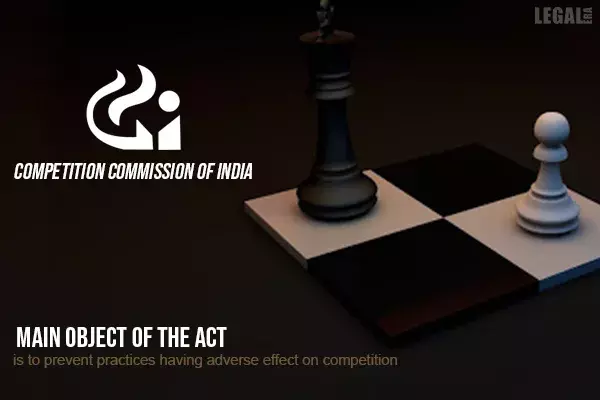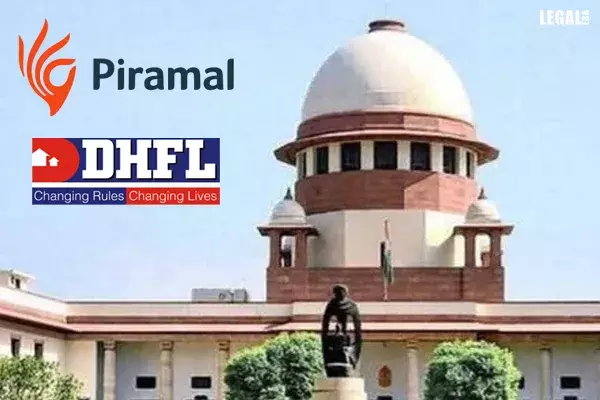Competition Commission of India reaffirms that the main object of the Act is to prevent practices having adverse effect on competition
The Competition Commission Of India has reiterated that main object of the Competition Act is to prevent practices having;

CCI reaffirms that the main object of the Act is to prevent practices having adverse effect on competitionThe Competition Commission of India has reiterated that main object of the Competition Act is to prevent practices having adverse effect on competition and to promote competition.In this matter, the Information had been filed by Mr. Sunil Goyal (the Informant) under Section 19(1)(a) of...
CCI reaffirms that the main object of the Act is to prevent practices having adverse effect on competition
The Competition Commission of India has reiterated that main object of the Competition Act is to prevent practices having adverse effect on competition and to promote competition.
In this matter, the Information had been filed by Mr. Sunil Goyal (the Informant) under Section 19(1)(a) of the Competition Act, 2002 (Act) against Greater NOIDA Industrial Development Authority (GNIDA/ OP) alleging inter alia contravention of the provisions of Section 4 of the Act.
The Informant is stated to be a practising advocate and purchaser of a plot from OP. The Informant was primarily aggrieved of the fact that OP had demanded payment of pending water bills despite the Informant not using the said premise and making repeated requests for disconnection of water supply in the past. Essentially, the Informant has alleged abuse of dominant position by OP in contravention of the provisions of Section 4 of the Actby imposing unfair and discriminatory condition.
On 30.12.2015, the Informant deposited a sum of Rs. 14,130/- towards water charges. The Informant alleged that it received another residential water charge scum-payment intimation dated 07.01.2016 demanding a sum of Rs. 19189.70/- towards the water charges along with interest @ 12% per annum for the period 31.03.2011 to 31.03.2016. The Informant again wrote letters Manager (Urban), GNIDA alleging that the said water bill report does not reflect the sum of Rs. 14,130/- which was deposited by the Informant on 30.12.2015 under protest.
The Informant also averred that without resolving the aforementioned grievances, it received another residential water charges-cum-payment intimation from OP demanding a sum of Rs. 34,193.38/-.
The Commission was of the view that the issues projected in Information do not fall in the realm of competition law and the remedies in respect thereof lie elsewhere. In this regard, it is apposite to mention that the Commission has in the past dealt with issues of similar nature in number of cases which essentially raised pure consumer or contractual disputes having no competition concerns and closed the same.
The Commission referred to the judgment of Sanjeev Pandey v. Mahindra & Mahindra wherein it was held that delay in delivery of vehicle cannot be termed as a violation of the provisions of the Act and noted that the informant had misunderstood the Act and probably confused it with the Consumer Protection Act, 1986. The scope of the Act is primarily aimed to curb the anticompetitive practices having adverse effect on competition and to promote and sustain competition in the relevant markets in India. Whereas the Consumer Protection Act, 1986 is aimed to protect the interest of individual consumers against the unfair practices being widely prevalent in the market.
The Commission also referred to the judgment of Sub hash Yadav v. Force Limited and Ors. wherein it was observed that the main object of the Act is to prevent practices having adverse effect on competition and to promote competition. The remedy for consumer disputes lies under the Consumer Protection Act, 1986 and not under the Competition Act, 2002.
In light of the above considerations, the Commission was of the opinion that the same could not be dealt with under the scheme of the Act and the remedies whereof would lie elsewhere.
According to the Commission, no case of contravention of the provisions of the Act was made out against OP and the Information was ordered to be closed forthwith in terms of the provisions contained in Section 26(2) of the Act.
It was also added that the Informant would be at liberty to raise the issues before the appropriate forum, if so advised.





